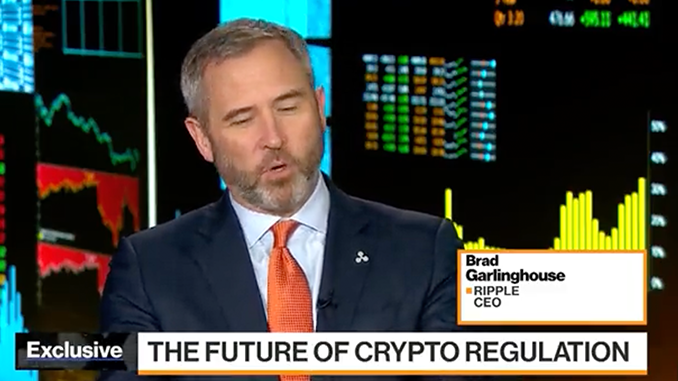
In the U.S., the Securities and Exchange Commission (SEC) is seeking more and more lawsuits against crypto companies like Ripple (XRP). But the crackdown appears to be controversial within the SEC and protests are also growing among the public.
The legal battle between the U.S. Securities and Exchange Commission (SEC) and Ripple (XRP) is in its final stages and a timely ruling is expected. In parallel, it is becoming increasingly apparent in the U.S. how crypto companies, advocacy groups and even within the SEC itself are growing resistance to giving the regulator a free hand in regulating the crypto industry. Several news items from the past week suggest that SEC Chairman Gary Gensler, who took office in 2021, is no longer without controversy. Fox Business, for example, reports on a campaign by the consumer association Digital Currency Trader’s Alliance (DCTA), which is stirring up sentiment with the slogan “Stop the SEC.”
This raises eyebrows because the SEC was founded in 1934 to protect consumers and investors by overseeing securities markets. But it’s not just the DCTA that feels the SEC under Gensler is overstepping its bounds. According to Fox Business, the SEC launched a record 30 crypto-related cases in 2022 and continued to pick up the pace in 2023 with 8 new cases already. Ripple and XRP were officially sued in December 2020 – but caught the SEC on the wrong foot in not making peace through an out-of-court settlement, but standing up to them legally. Ripple CEO Brad Grlinghouse pointed out in a recent TV interview that crypto companies are already leaving the U.S. because of the SEC, depriving the country of innovation and jobs.
Meanwhile, in another storyline, well-known crypto lawyer John Deaton wrote on Twitter that he hears from the SEC itself how lawyers employed there are complaining internally about more and more legal cases. According to the report, they believe Gensler’s course is excessive and also point to limited resources. Deaton is involved in the SEC’s lawsuit against Ripple as a representative of XRP investors who believe the agency’s position is wrong that their investments should be classified as securities.
But Gensler himself was recently heard to say that he tends to consider all cryptocurrencies except Bitcoin (BTC) as securities. From this, Gensler also infers wanting to regulate crypto exchanges and related companies more harshly. Cardano (ADA), for example, is already discussing the extent to which staking could be targeted by the SEC. In the meantime, the majority of prominent crypto lawyers and companies agree that the SEC must be dealt with legally and that the strategy of offering no discernible resistance through out-of-court settlements must be abandoned.
Bottom line: SEC v. Ripple now spearheading fight against overregulation
When the SEC filed suit against Ripple and XRP just over two years ago, Garlinghouse initially hoped in vain for solidarity from the industry. Here, the winds have shifted. But the SEC and Gensler are also showing their teeth and feel vindicated, not least by the economic scandal surrounding the insolvent crypto exchange FTX, in having to expand their competencies. From the outside, it is a shame that a constructive dialogue between the two camps is not taking place, thus blocking the path to transparent, measured regulation of cryptocurrencies and service providers. Attorney Deaton already believes an appeal in the SEC vs. Ripple case is inevitable. A clear official U.S. stance on the crypto industry is probably not expected until 2025, he said, also influenced by the outcome of the November 2024 presidential election. SEC boss Gensler would then be 67 years old and ripe for retirement.

Leave a Reply